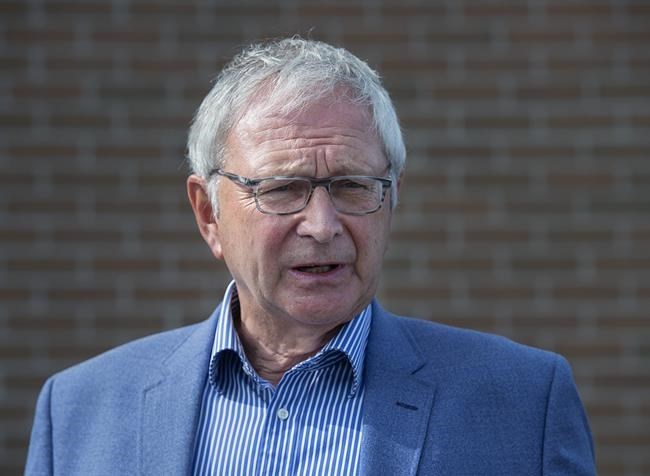FREDERICTON — The Atlantic bubble that was pierced Monday when Prince Edward Island and Newfoundland and Labrador left is now in tatters with New Brunswick's announcement that it is pulling out.
Starting Friday, all visitors to New Brunswick — regardless of whether they live in Atlantic Canada — will be required to self-isolate for 14 days upon arrival.
"Community transmission is a real concern in New Brunswick," Premier Blaine Higgs told reporters Thursday as he announced the new rules. "At this point, community transmission has not been confirmed here but the threat is real. So taking swift action right now is important."
Visitors to New Brunswick from any province, Atlantic Canada included, will have to pre-register, Higgs said. "Travellers who haven't been registered are subject to fines."
Nova Scotia is now the last member of the so-called Atlantic bubble. In July, the four Atlantic provinces agreed to allow their residents to travel freely throughout the region without having to isolate for 14 days after crossing a border. All other Canadians as well as international travellers were subject to strict quarantine rules when they entered the region.
Atlantic residents can still enter Nova Scotia without having to self-isolate for 14 days. Nova Scotia Premier Stephen McNeil, however, said Thursday in statement that his province's health officials have made a "strong recommendation" against non-essential travel. He said he respects New Brunswick's decision to pull out of the bubble.
Prince Edward Island and Newfoundland and Labrador announced on Monday they were leaving the Atlantic bubble but said the measure was temporary. Higgs didn’t indicate whether the same is true for New Brunswick. He said certain people would be exempt from the 14-day isolation order, including people travelling into the province for work and people with cross-border custody arrangements.
New Brunswick reported 12 new COVID-19 cases Thursday: eight in the Saint John region, one in the Moncton region and three in the Fredericton area.
On Friday, Fredericton will join Moncton and Saint John in the heightened “orange” pandemic-alert level. Dr. Jennifer Russell, chief medical officer of health, said orange-level restrictions include a limit on gatherings to members of the same household, mandatory mask-wearing in public and a limit on non-essential travel.
Russell also advised residents to avoid close contact with anyone coming from Nova Scotia, particularly Halifax. In the past week, Newfoundland and Labrador has confirmed two positive COVID-19 cases linked to travel from Nova Scotia.
Higgs said with Fredericton now on heightened alert, peace officers will be in the region to enforce the new restrictions. He said police have conducted 426 recent inspections in the Moncton and Saint John region and issued 71 fines and 140 compliance letters to businesses. "They're out there to protect each and every one of us," Higgs said.
Russell said that similar to Nova Scotia, young people are fuelling New Brunswick's growing caseload and implored them to "stop gathering in large groups, stop travelling — especially to known hot spots in our region, and get tested as soon as symptoms emerge."
There are 105 active cases of COVID-19 in New Brunswick, one person in hospital being treated for the disease and 1,700 people in self-isolation, Russell said. The province has reported a total of 465 COVID-19 infections and seven deaths linked to the virus.
This report by The Canadian Press was first published Nov. 26, 2020.
Sarah Smellie, The Canadian Press



